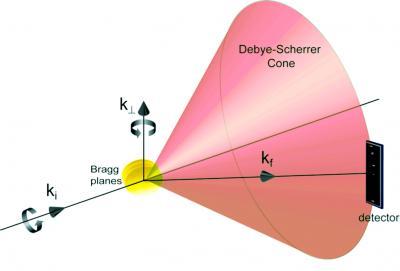Over the past two decades or so, there has been increasing interest and development inmeasuring slow dynamics in disordered systems at the nanoscale, brought about in part from a demand for advancements in the food and consumer products industries.
Some of the techniques that have been developed over recent years to study the dynamic properties of these materials include X-ray photon correlation spectroscopy (XPCS) and speckle visibility spectroscopy (SVS). Both of these techniques however suffer from some fundamental limitations ranging from the use of only specialized X-ray facilities to the actual nanoscale resolution required of the technique.
Scientists at the University of Illinois at Urbana-Champaign, USA; Argonne National Lab, USA; Centre for Free-Electron Laser Science, Hamburg, Germany and University College London, UK have developed a new technique called rotational X-ray tracking (RXT). The researchers were successful in demonstrating the power of the new technique by using it to study small crystalline particles immobilized by the fact they form a colloidal gel under certain conditions. One might think of the gel as being an immobile colloidal dispersion. However, the scientists were able to show how the particles in the colloidal gel actually undergo angular motion and the precise nature of the rotational motion is a unique measure of the nanoscale elastic properties of the gel network under examination. These findings open up a whole new class of dynamical systems and materials.

The Bragg scattering geometry for the experiment. is shown
(Photo Credit: Liang, M. et al.)
Even though RXT requires a relatively high flux X-ray beam it does not require a coherent X-ray beam as in XPCS and SVS, thus making it a more accessible technique for researchers. Flexibility in the size of particles is also possible depending on the nature of the X-ray source and volume fraction of the particles.